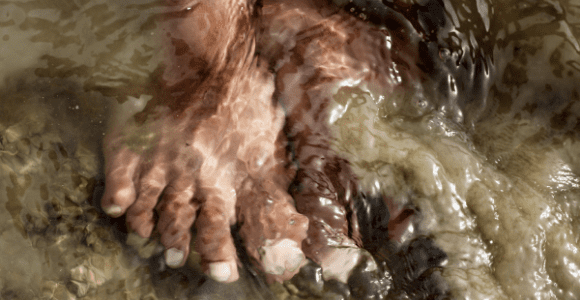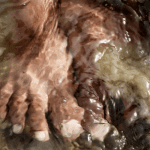Welcome readers! Please subscribe through the button on the right.
(Read this series from the beginning at Part 1 and Part 2.)

I want to offer an alternative interpretation. Poverty is a human-made reality, and therefore poverty can be eradicated through our choices in how we structure our societies.
Consider this passage from the Torah:
“At the end of every seven years you must cancel debts. This is how it is to be done: Every creditor shall cancel any loan they have made to a fellow Israelite. They shall not require payment from anyone among their own people, because the LORD’S time for canceling debts has been proclaimed. You may require payment from a foreigner, but you must cancel any debt your fellow Israelite owes you. However, there need be no poor people among you, for in the land the LORD your God is giving you to possess as your inheritance, he will richly bless you, if only you fully obey the LORD your God and are careful to follow all these commands I am giving you today.” (Deuteronomy 15:1-5)
This passage states that there doesn’t need to be “poor people” among Israelites. They are being given instruction on how to eradicate poverty. Later in the same chapter, we read, “There will always be poor people in the land [i.e. the surrounding societies outside of Israel]. Therefore I command you to be openhanded toward your fellow Israelites who are poor and needy in your land [as opposed to the larger societies in which poverty will always exist because the way those societies are shaped] (italics and capitalization added).
I don’t believe Jesus’ words in John about poor people should be interpreted as establishing as an existential reality that poverty is an eternal, unchangeable given for our world. Even if one does, however, then we can read Jesus as saying that Israelite society has become like the surrounding nations in Deuteronomy where poverty “will always exist” because of their structure. Jesus words here are an indictment of his society’s rejection of the mandate to forgive debts every seven years. Therefore, they were choosing to structure their society by immortalizing poverty as the surrounding nations in Deuteronomy 15 had. These choices can be reversed. We can structure our societies differently. The early Jesus followers in the book of Acts eradicated poverty from their own community in Jesus’ name:
“With great power the apostles continued to testify to the resurrection of the Lord Jesus.”
Remember, it was not that Jesus had died, but that he had been resurrected. His death had been reversed.
“And God’s grace was so powerfully at work in them all that there were no needy persons among them. For from time to time those who owned land or houses sold them, brought the money from the sales.” (Acts 4:33-34, italics added)
Last year, I mentioned these words of Nelson Mandela and Gustavo Gutierrez in Declaring War Against Poverty:
“Like slavery and apartheid, poverty is not natural. It is man-made and it can be overcome and eradicated by the action of human beings.” (Nelson Mandela, in a 2005 speech at the Make Poverty History rally in London’s Trafalgar Square)
“The poor person does not exist as an inescapable fact of destiny. His or her existence is not politically neutral, and it is not ethically innocent. The poor are a by-product of the system in which we live and for which we are responsible. They are marginalized by our social and cultural world. They are the oppressed, exploited proletariat, robbed of the fruit of their labor and despoiled of their humanity. Hence the poverty of the poor is not a call to generous relief action, but a demand that we go and build a different social order.” (Gustavo Gutierrez, The Power of the Poor in History, p. 44)
There is a lot to consider here.
How are you being called to be a conduit of love, healing, life, and life-giving in your own contexts, this week?














